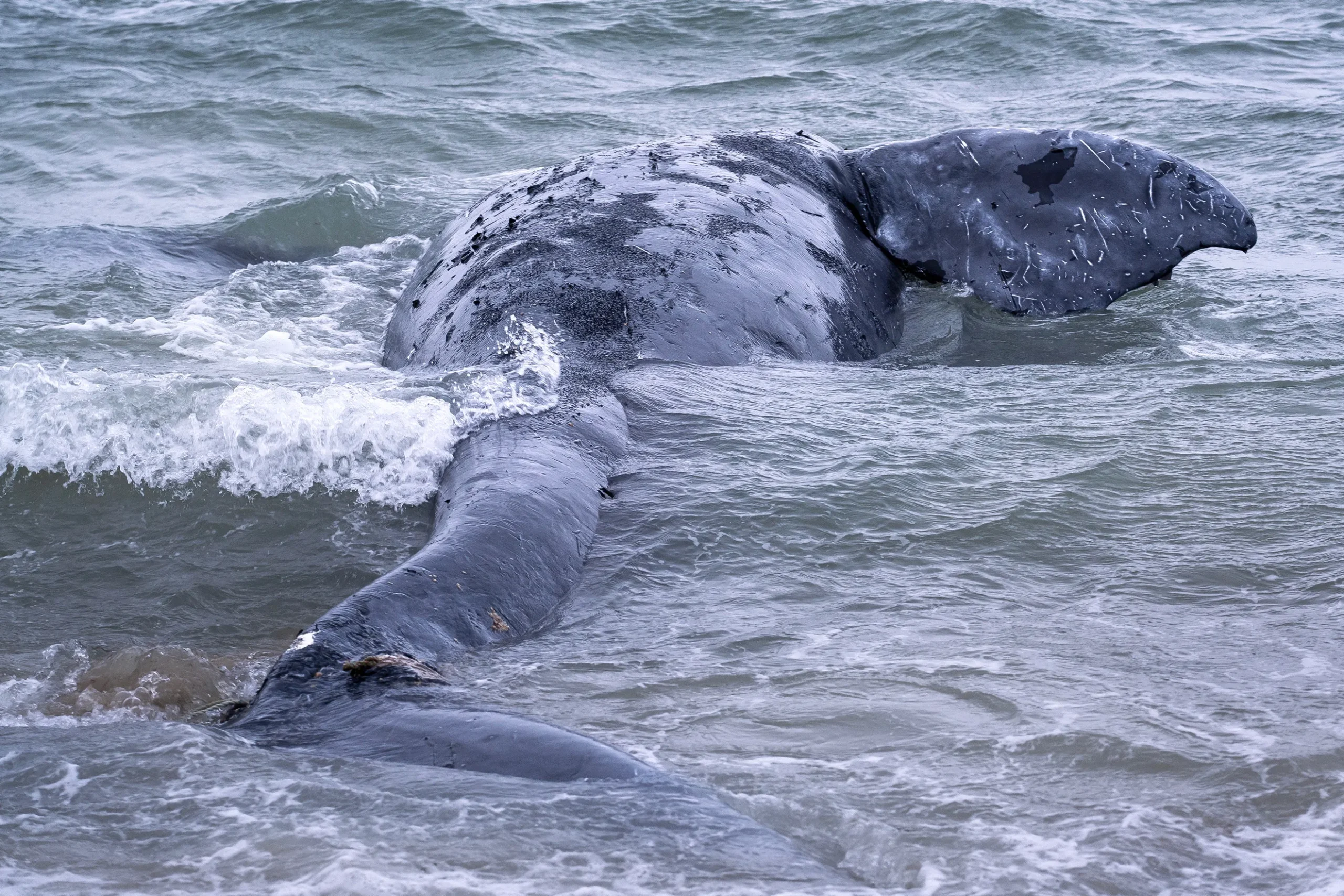Over the past weekend, a distressing discovery unfolded on Martha’s Vineyard: the carcass of a 3-year-old whale washed up on the shore, bearing a fishing rope deeply embedded in its tail. This somber revelation was disclosed by scientists from the New England Aquarium on Friday.
The deceased whale was identified as a 3-year-old female North Atlantic right whale, known by the designation #5120. The unfortunate creature was found near Joseph Sylvia State Beach on January 28th. In an effort to uncover the cause of its demise, a necropsy will be conducted during the course of this week.
Collaborative efforts between the Wampanoag Tribe of Gay Head (Aquinnah) and the International Fund for Animal Welfare facilitated the retrieval of the whale’s body. Additionally, law enforcement authorities from the state collected the entangled rope from the whale’s tail, subsequently handing it over to NOAA’s Office of Law Enforcement.
Amy Knowlton, a senior scientist at the Anderson Cabot Center for Ocean Life, stressed the significance of this incident, highlighting the ongoing peril faced by right whales and other marine species due to entanglements in fishing gear. She emphasized the imperative nature of preventing such entanglements, citing it as a societal obligation.
Tragically, this is not the first time #5120 has grappled with entanglement issues. Previous encounters in August 2022 and subsequent attempts in January and February 2023 to disentangle her proved unsuccessful. Her condition further deteriorated after she was found entangled once again in June 2023.
While the family tree of #5120 remains only partially known, it is evident that entanglements have plagued her lineage. With North Atlantic right whales facing mounting threats from fishing gear and vessel strikes, the loss of this young female is a poignant reminder of the challenges confronting the species.
North Atlantic right whales are critically endangered, with a dwindling population of fewer than 360 individuals, including roughly 70 breeding females. In light of these challenges, the development and implementation of innovative technologies such as on-demand fishing gear are deemed crucial for the conservation of these whales while ensuring the sustainability of fishing practices.
In the wake of this tragic event, concerted efforts are imperative to safeguard the future of North Atlantic right whales and prevent further instances of loss and suffering within the population.















































